

Tao Te Ching

Egolessness
Questioning our belief in a separate, independent self helps form the foundation of the Buddha’s teaching. Egolessness is a definition of the Buddhist path as a whole. Chogyam Trungpa calls ego “a brilliant work of art, a product of the intellect that says ‘Let’s give all this a name. Let’s call it ‘I’.’ ” In probably the first psychological philosophy, an extensive teaching called Abidharma describes the heaps of tendencies and delusions (skandhas) that go into forming this illusion of self which we make into such a “big deal”. Without this basic realization, spiritual practices and study become spiritual materialism, increase, and solidify our delusion. For example, how easy to completely misunderstand the idea of reincarnation if a belief in and independent self. Ego—personal, national, religious, family, sports, cultural, and subcultural—is the ground of suffering and true spiritual paths begin and progress with a dissolving of this big-deal-ego illusion. This understanding permeates the Tao Te Ching, Zen, and the mystical fringes of Judaism, Hinduism, Christianity, and Islam.
“When you develop awareness, there is no one who is aware. It is like a movie screen without an audience, a television in an empty room. The clarity of awareness is like dynamite that takes down the walls of ego.”—Chögyam Trungpa
Quotes (119)
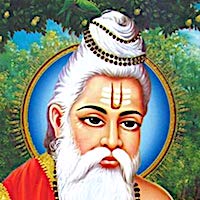
“This Self is never born, nor does It die. It did not spring from anything, nor did anything spring from It. This Ancient One is unborn, eternal, everlasting. It is not slain even though the body is slain.”
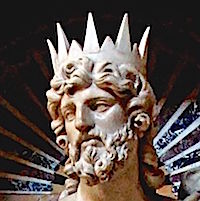
“Let me keep surrendering my self until I am utterly transparent... Unnamable God, my essence, my origin, my life-blood, my home.”

“Returning to the root brings a peace that recognizes no difference between self and other.”

“Believing in a separate self creates great suffering. How can there be suffering without a self?”
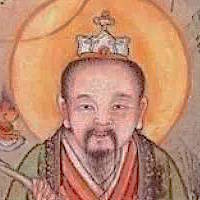
“When a person does not dwell in self, things will of themselves reveal their forms.”

“Cease to cherish any arbitrary conceptions as to your own self, the selfhood of others, of living beings, of a Universal Self.”

“He who experiences the unity of life sees his own Self in all beings, and all beings in his own Self, and looks on everything with an impartial eye.”
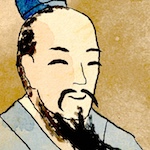
“People usually look at things from their personal point of view and therefore miss the truth.”
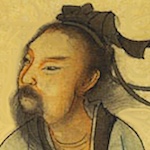
“The perfect man ignores self; the divine man ignores action; the true Sage ignores reputation.”
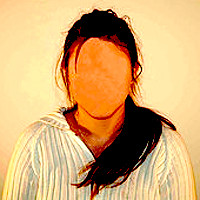
“If a man cannot dance, he cannot pray. Angels have mouths but lack the power of speech. The speak to God by dancing... dancing kills the ego, and once the ego has been killed there is no further obstacle to prevent you from joining with God”
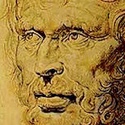
“Nothing arises in the body in order that we may use it, but what arises brings forth its own use”

“Those who find their life shall lose it: those who lose their life for my sake shall find it.”
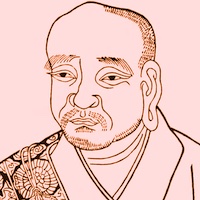
“The Buddhadharma requires every person to free themselves from the illusion of self.”

“It is called, ‘consummation of incomparable enlightenment.’ attained by freedom from separate personal selfhood and by cultivating all kinds of goodness… though there is no goodness; such is merely a name.”

“Perfect peace lies in freedom from characteristic distinctions… free from the idea of a personality, free from the idea of a being, and free from the idea of a separated individuality.”
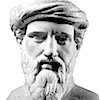
“It is ignorance that causes us to identify ourselves with the body, the ego, the sense”
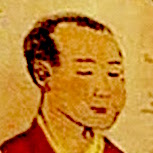
“If such a thing as 'I' exists indeed.
Then terrors, granted, will torment it.
Buttt since no self or 'I' exists at all,
What is there left for fears to terrify?”

“The birds have vanished into the sky and now the last cloud drains away. We sit together the mountain and me, until only the mountain remains.”

“When a monk asked Joshu, ‘Does a dog have Buddha-nature?’ he replied, ‘Bu.’ (不 ‘no thing’ in Chinese)”
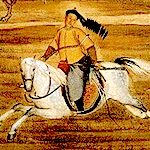
“When right and wrong, other and self exist in their midst, love and hate will arise and attach each other. When love and hate arise and attack each other, warfare will flourish.”
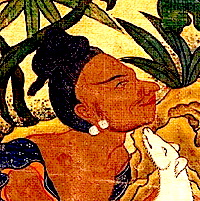
“The mundane power of gods is delusory for they still retain the notion of self.”
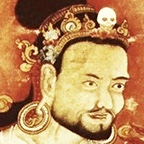
“I shall kill the fleeing deer of this and that, On the mountain of the body believing in an I.”
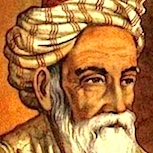
“And strange to tell, among that Earthen Lot
Who is the Potter, pray, and who the Pot?”
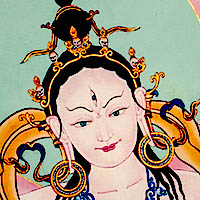
“As long as there is an ego, there are demons. When there is no more ego, there are no more demons either!”
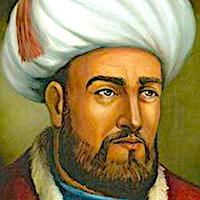
“If the thought that he is effaced from self occurs to one with a realization of fans ['no-mind'], that is a defect. The highest state is to be effaced from effacement.”

“All of a man’s happiness is in his being the master of his ego, while all his suffering is in his ego being his master.”

“Only by accepting that the ego is a fabricated illusion do we walk the Buddha's Way.”

“Whether it's sugar or poison, how sweet is selflessness!
You grab a hat, hou have no head. How sweet is selflessness!”
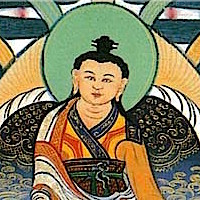 “
“Set out on the path to peace by being alert and mindful to the misery of chasing after the fame, fortune, pleasure, and power goals of a belief in a separate self. Quickly conquer this fictitious being and enjoy the feast of life's true meaning.”
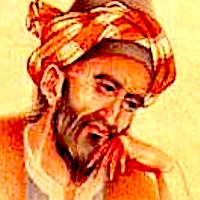
“I am a hole in a flute that the Christ’s breath moves through… I am the concert from the mouth of every Creature”
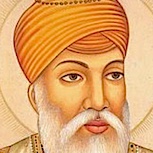
“When affection for the I-creature and what it owns is dead, then the work of the Teacher is over.”

“We are such stuff as dreams are made on, and our little life is rounded with a sleep.”

“Avoid the faults of your nation… There is not a nation among even the most civilized that has not some fault peculiar to itself…It is a triumph to correct in oneself such failings… There are also family failings as well as faults of position, of office, or of age.”

“Do not listen to yourself […] the attention you pay to yourself you probably owe to others.”
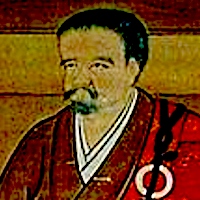
“Notions of what one should do never existed from the start. Fighting about what's right, what's wrong—that's the doing of the 'I'”
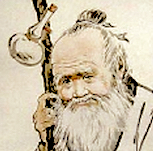
“looking upon others and oneself as the same there will be no discordant action.”
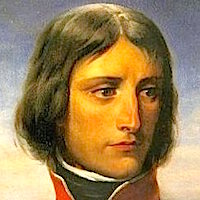
“I was never in truth my own master; I was always governed by circumstance.”

“The poetic mind has no self, no character, no identity; it is every thing and nothing, continually filling some other Body: The Sun, the Moon, the Sea and Men and Women”
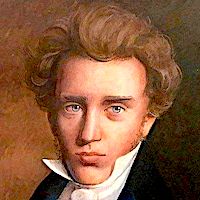
“Man is spirit. But what is spirit? Spirit is the self. But what is the self? The self is a relation which relates itself to its own self. The self is not the relation but consists in the fact.”
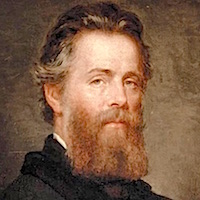
“How then can this one small heart beat; this one small brain think thoughts; unless God does that beating, does that thinking, does that living, and not I.”

“We have hugely mistaken this matter of Life and Death… my body is but the lees of my better being, it is not me”
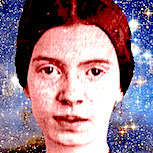
“I'm nobody! Who are you? Are you nobody too? Then there’s a pair of us — don’t tell! They’d banish us, you know.”
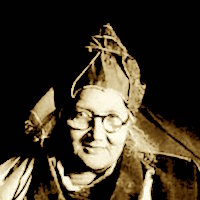
“Hearing that there was a yogini, many gathered in crowds to stare at me. I examined myself and realized that I am just a follower of the great teachers who has received their blessings.”
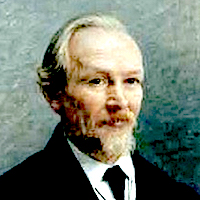
“The ‘I’ has fallen to pieces after struggling for three centuries against the great objective institutions and dissolving them with its subjectivism and rejecting in them any law that was sacred and binding on itself.”
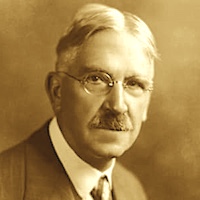
“The self is not something ready-made, but something in continuous formation through choice of action.”
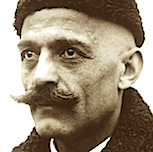
“Man has no individual 'i'. But there are, instead, hundreds and thousands of separate small 'i's, very often entirely unknown to one another, never coming into contact, or, on the contrary, hostile to each other, mutually exclusive and incompatible. Each minute, each moment, man is saying or thinking, 'i'. And each time his 'i' is different. Just now it was a thought, now it is a desire, now a sensation, now another thought, and so on, endlessly. Man is a plurality. Man's name is legion.”

“Guard against idols—yes, guard against all idols, of which surely the greatest is oneself.”

“'I live' becomes the objective 'it lives me'… In the Pauline Christ-symbol ('No longer do I live, but Christ liveth in me.') the deepest religious experience of the West and East meet.”
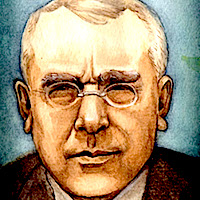
“First of all, what man must know is that he is not one; he is many. He has not one permanent and unchangeable ‘I’ or Ego. He is always different. One moment he is one, another moment he is another, the third moment he is a third, and so on, almost without end.”

“At one moment when I say 'I', one part of me is speaking,and at another moment when I say 'I', it is quite another 'I' speaking.”

“The true value of a human being is determined by the measure and the sense in which he has attained liberation from the self.”
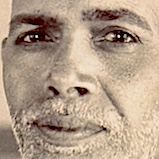
“Does a man who is acting on the stage in a female part forget that he is a man? Similarly, we too must play our parts on the stage of life, but we must not identify ourselves with those parts.”
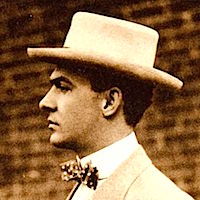
“When a person no longer confuses a personal body with self and recognizes all people as members of their own body, neither failure or success can bother them and they become safe to guide and guard others.”
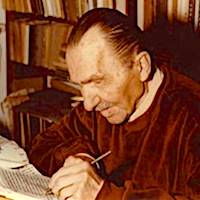
“This mine, mine and me, me was my friend's terrible prison, a dungeon without windows or doors. 'Do you know the highest peak a man can reach? It is to conquer the self, the ego. When we reach that peak, and only then, Angelos, we shall be saved.'”

“We are temporary organs of the race, cells in the body of life... In truth we are not individuals and it is because we think ourselves such that death seems unforgivable.”

“I became almost reconciled to mortality, knowing that my spirit would survive me enshrined in a fairer mold ... my little worth somehow preserved in the heritage of men.”
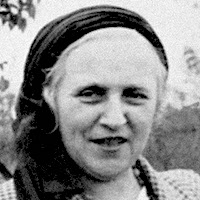
“I need to see that the thought 'I' is the greatest obstacle to consciousness of myself.”
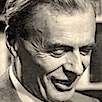
“In later Buddhist philosophy… language is a main source of the sense of separateness and the blasphemous idea of individual self-sufficiency… the infatuating delusion of ‘I,’ ‘me,’ ‘mine.’”

“It is only when we have renounced our preoccupation with ‘I,’ ‘me,’ ‘mine,’ that we can truly possess the world in which we live… And not only is everything ours; it is also everybody else's.”
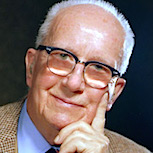
“I am not a category. I am not a thing — a noun. I seem to be a verb, an evolutionary process – an integral function of the universe.”
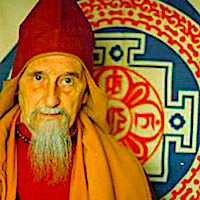
“Nothing in the world has only one cause. When we speak of causality, we arbitrarily select one of the many causes namely the one which is the most obvious or nearest in time... the Buddha's conception was more profound and based on a reality far beyond the one-sided perspective assumed by our illusory ego.”
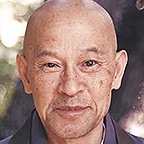
“There is no connection between I myself yesterday and I myself in this moment; there is no connection whatsoever.”

“If we are aware that what we do or what we create is really the gift of the 'big I,' we will not create problems for ourselves or for others.”
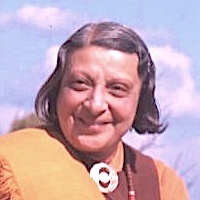
“To symbolize the ego—which misleads people into believing that they are permanent and separate beings—a small figure was made of tsampa... the dancers stabbed this figure of evil with daggers.”
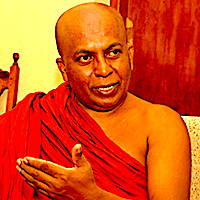
“the idea of self is an imaginary, false belief which has no corresponding reality… It is the source of all the troubles in the world from personal conflicts to wars between nations… to this false view can be traced all the evil in the world.”
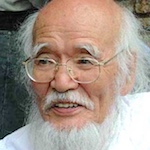
“The moment that we become humble before nature and renounce the self, the self shall become assimilated into nature and nature shall allow it to live... It is enough merely to know this road and walk it every day.”

“I could be taken for a very large, motile colony of respiring bacteria, operating a complex system of nuclei, microtubules, and neurons for the pleasure and sustenance of their families, and running, at the moment, a typewriter.”
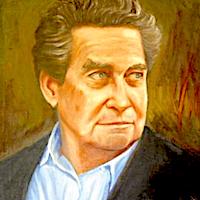
“We all have our own personality, unique and distinctive; and at the same time, this distinctive personality blends with the wind, with the footsteps in the street, with the noises around the corner, and with the silence of memory”
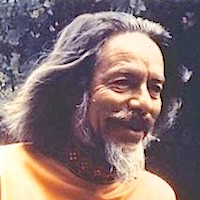
“ego is the role, the 'act' [and when] it is understood that the ego is a social fiction, life ceases to be problematic”

“The ego is in every sense a story… To identify with the ego is to confuse the organism with its history, to make its guiding principle a narrowly selected and incomplete record… and therefore liberation from the ego is synonymous with the full acceptance of death.”
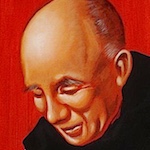
“As long as you have to defend an imaginary self that you think is important, you will lose your peace of heart... there is no joy in things that do not exist.”
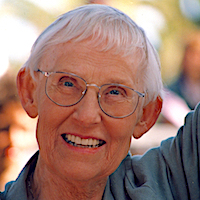
“all our problems are versions of 'My self is disturbed by what other selves are doing.' And there aren't any other selves.”

“all our problems are versions of 'My self is disturbed by what other selves are doing.' And there aren't any other selves.”
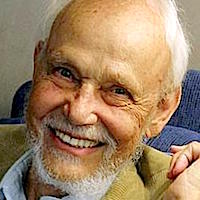
“We become compassionate not from altruism which denies the self for the sake of the other, but from the insight that sees and feels one is the other.”
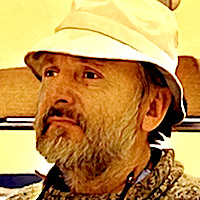
“The ego-climber is like an instrument that’s out of adjustment… What he’s looking for, what he wants, is all around him, but he doesn’t want that because it *is* all around him… he imagines his goal to be external and distant.”
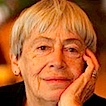
“You can only be kind or cruel if you have, and cherish, a self… Altruism is the other side of egoism.”
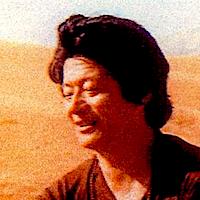
“In the West these days, though they have good intentions, parents’ main advice to children is 'You must be strong. You must have self-esteem. You must not lose your hold on yourself. You must stand on your own feet. Don’t depend on others.' —but what is self? Modern people are afraid of losing their own ordinary egos. What else do they have to lose but that?”
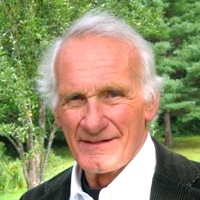
“To speak, or act, or think originally is to erase the boundary of the self. It is to leave behind the territorial personality.”
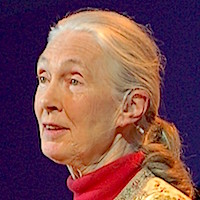
“Go out into the world; walk slow and silent, comprehending all, and by and by your soul, the Universe, will know Itself: the Eternal I.”
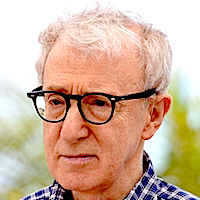
“It's not that I'm afraid to die, I just don't want to be there when it happens.”
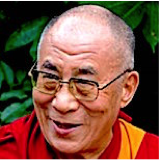
“The foundation of the Buddha's teachings lies in compassion, and the reason for practicing the teachings is to wipe out the persistence of ego, the number-one enemy of compassion.”
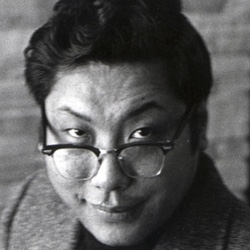
“We cannot find the beginning of the tantric thread unless we come to the conclusion that we do not exit.”

“the result of anything aimed at enriching the ego is destruction, complete confusion, perpetual confusion.”

“vajra ignorance... sweeps away all thoughts of possessiveness and self like a pile of dust.”

“All (Buddhist) teachings are basically related with a way of subjugating our ego, shedding our ego.”

“Spiritual practice is stepping out of the duality of me-ness and my-ness as opposed to otherness, of who is me and who is not me.”
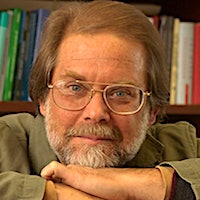
“If there is no self-being there can be no dependent being either... Yet we strive to become real through the eyes of others who strive to become real through the eyes of others who strive...”
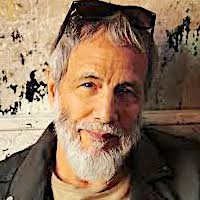
“What makes me me, what makes you you? It’s just a different point of view, a state of mind I’m going through…”

“each person exists as an individual, but the self, or personal identity, is not an independent ego that is somehow in control of body and mind. Rather… a matrix of dependently related events in a state of flux.”
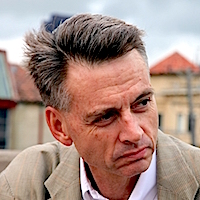
“Buddhist thought and modern psychology converge on this point: in human life as it’s ordinarily lived, there is no one self, no conscious CEO, that runs the show; rather, there seem to be a series of selves that take turns”
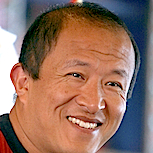
“Clinging to the fallacy of the self is a ridiculous act of ignorance that… permeates everything we do, see, and experience… our whole existence is based on very flimsy premises.”
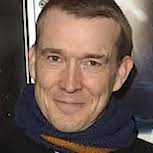
“Your big mistake is to assume your brain generates a bubble of consciousness you call 'Me.'... The truth is that you're not your own private 'I.' You are to consciousness what the flame of a match is to the Milky Way.Your brain only taps into consciousness. You aren't a broadcaster. You're a transceiver.”
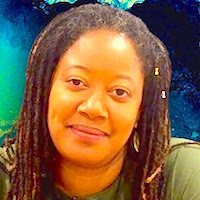
“Relationships chisel the final shape of one’s being. I am me, and you.”
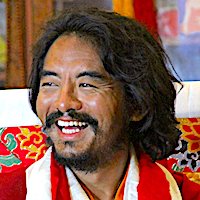
“Ego is not an object; it's more like a process that follows through on the proclivity for grasping, and for holding on to fixed ideas and identities. What we call ego is really an ever-changing perception.”
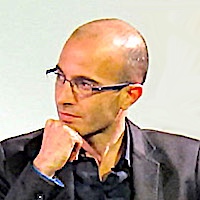
“both the 'self' and freedom are mythological chimeras borrowed from the fairy tales of ancient times... in order to understand ourselves, a crucial step is to acknowledge that the 'self' is a fictional story that the intricate mechanisms of our mind constantly manufacture, update, and rewrite... Like the government spin doctors... my inner propaganda machine creates a personal myth with prized memories and cherished traumas that often bear little resemblance to the truth.”

“Our liberal political and judicial systems are founded on the belief that every individual has a sacred inner nature, indivisible and immutable... Yet over the last 200 years, the life science have thoroughly undermined this belief.”
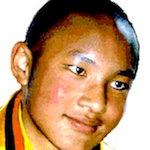
“where is this I that is exclusively me?... it should be evident that 99% of what we call I is not really I. It is what we usually consider 'other.'”
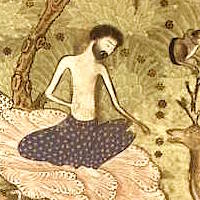
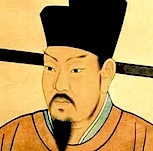

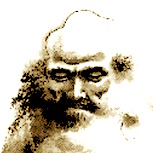


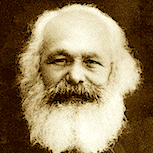
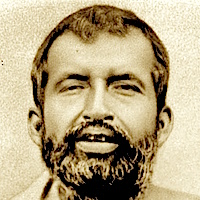
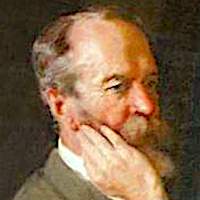
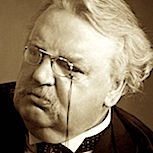
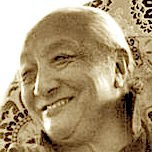
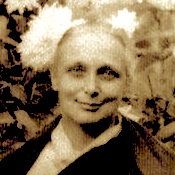

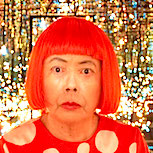

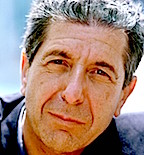
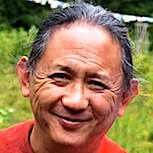
Comments (0)